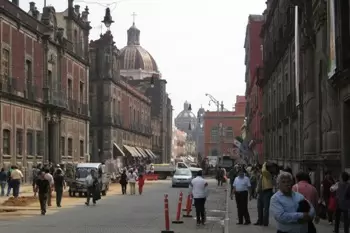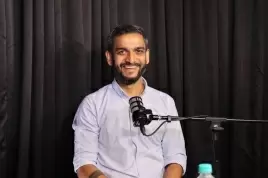New Delhi and other Indian cities can take a cue from Mexico for safety sake

25-April-2013
Vol 4 | Issue 17
Mexico City is one of the largest, most densely populated urban spaces in the world.
While the city proper has nine million residents another 4.5 million or so commute to the metropolis every day from the suburbs and surrounding towns.
 |
|
Mexico brought its crime rate down, by improving the security for its women (Photos: WFS)
|
Crime and violence tend to thrive in such settings even as insecurity seeps into the pores of everyday life. Like many other megapolises in the world, Mexico City too has its share of challenges, especially with the shadow of powerful drug cartels constantly hovering over it.
Yet, it has in the recent past emerged as one of the least crime prone of Mexican cities, with a murder rate that was half that of the national level of 18 per 100,000 residents.
While the levels of crime kept increasing in other cities, the country’s capital actually witnessed a decline in crime by 40 per cent, with the same number of policemen as earlier.
Many are the reasons hazarded for this remarkable decline in crime. But ask one Mexican, Marcelo Ebrard Casaubon, why Mexico City has been able to bring about a modicum of safety into its residents’ lives and he will say it is because it is a little more gender equal today than it was a decade ago. Marcelo Ebrard should know, he was after all the mayor of Mexico City from 2008 to 2012.
On his recent visit to Delhi, Ebrard observed that what the experience of Mexico City proves is that bringing in more police is not the answer to making a city safer. Said he, “I am convinced that it is a more women-friendly approach that has been key to Mexico City’s turnaround in terms of crime levels.”
Among the progressive laws enacted was the Substantive Equality Between Women and Men Law, which came into force in 2007.
Three years later, on March 8, 2010, Mexico City mainstreamed equal opportunity and non-discrimination against women as part of public policy, so that women living in the city had a level playing field and equal entitlements as did men.
But to this day equal pay for equal work, despite the law, is still not guaranteed. Besides this, a great deal of sexual harassment continues to take place, and domestic violence is a serious problem.
So while under the existing legal system a woman who faced ill treatment at the hands of her husband could technically go to the general attorney and denounce her husband’s behaviour, very few women did this because the fear of reprisal was so great.
Things began to change a little only when the government stepped in and established a special facility that functioned like a temporary shelter.
Women under attack from husbands or partners were free to stay in these shelters for a period of up to six months – a period that they can use to look for a job and find a way to lead an independent existence. Not only were they entitled to free accommodation, they got a small stipend of US $ 230 a month for this period of half a year.
Certain issues were infinitely more difficult to handle given their sensitive nature. Ensuring the right to an abortion, for instance, proved difficult to achieve in a predominantly Catholic society.
A move to liberalise abortions created a huge uproar, and saw sharp polemical exchanges. Both the church and conservative politicians were opposed to it and argued that it would open the floodgates of permissive behaviour.
Yet finally, with the mayor firm in wanting to bring about change, abortions were liberalised in 2010 and termination of pregnancy up to 12 weeks was allowed. Today, about 11,000 abortions take place every year in public hospitals, which indicates the high level of clandestine procedures that must have been taking place when abortions were deemed illegal.
Other initiatives included starting safe, convenient and cheap bus services for women. On January 14, 2008, the Public Transit Network of the Federal District launched the Athena Service, which runs in 23 of the 91 bus routes in the city.
 |
|
Marcelo Ebrard Casaubon, former mayor of Mexico City
|
Easy to identify, each bus had its front and sides painted pink with the words “Exclusively for Women” emblazoned on it. These buses plied from 6.00 am to 9.00 pm.
While tickets cost around two Mexican pesos ($0.15), pregnant women, elderly women and those with disabilities were allowed to board Athena buses free of charge. Some 6.5 million women now use this service on a daily basis and are spared the sexual harassment they can face in the general buses.
The idea, ultimately, was to secure the lives of those who comprised half the city’s population. With women’s security, the city too appeared to be safer with crime levels markedly dipping.
After his term ended, Ebrard was appointed president of the UN Steering Committee for Safer Cities.
Today, he is convinced that the best way to enhance the safety of urban spaces is to empower women in multiple, cross-cutting ways.
He put it this way, “For human development, we need women’s development; and for women’s development, we need human development.” - Women's Feature Service
















